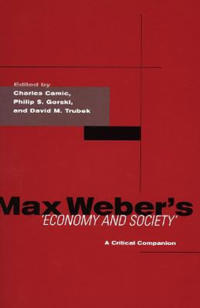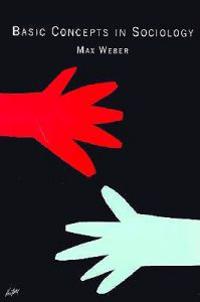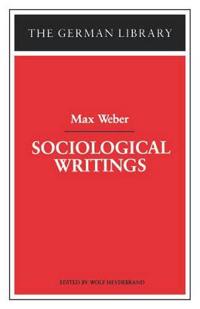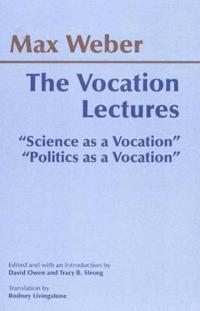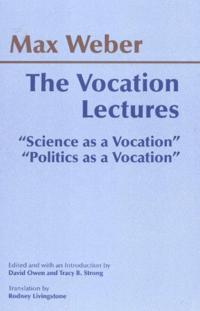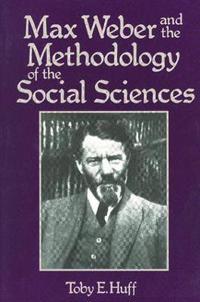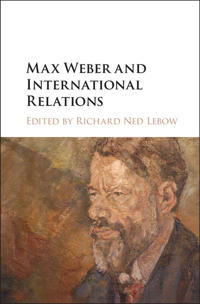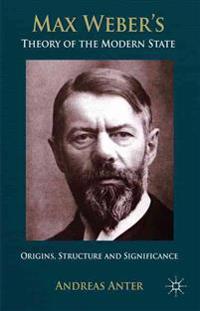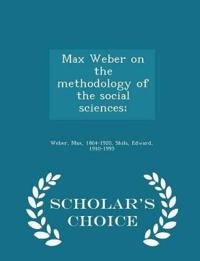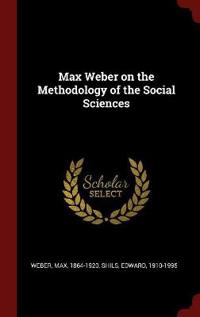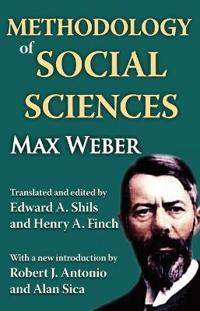Max Weber and the New Century
ISBN: 9780765801906 - UTGIVEN: 2003-07The most profound and enduring social theorist of sociology's classical period, Max Weber speaks as co-gently to concerns of the new century as he did to those of the past. Over the past seventy years, those special ideas that have become identified as "Weberian" have become especially pertinent to [...]
Max Weber
ISBN: 9780803925519 - UTGIVEN: 1985-10In Max Weber: A Skeleton Key Randall Collins gives a concise overview of the work of one of sociology's greatest classic thinkers. The many strands of Weber's theorizing and the breadth and scope of his historical comparisons are here brought clearly into focus. This is an ideal text for students in[...]
Max Weber's Economy And Society
ISBN: 9780804747165 - UTGIVEN: 2005-01Max Weber's Economy and Society is widely considered the most important single work in sociology and among the most important in the history of the social sciences. This volume provides a critical and up-to-date introduction to Weber's magnum opus. While much has been published about the various p[...]
The Max Weber Dictionary
ISBN: 9780804750943 - UTGIVEN: 2005-02Max Weber is one of the world's most important social scientists, and one of the most notoriously difficult to understand. This dictionary will aid the reader in understanding Weber's work. Every entry contains a basic definition, examples of and references to the word in Weber's writing, and refe[...]
The Max Weber Dictionary
ISBN: 9780804783415 - UTGIVEN: 2016-09Max Weber is one of the world's most important social scientists, but he is also one of the most notoriously difficult to understand. This revised, updated, and expanded edition of The Max Weber Dictionary reflects up-to-the-moment threads of inquiry and introduces the most recent translations and r[...]
The Max Weber Dictionary
ISBN: 9780804783422 - UTGIVEN: 2016-09Max Weber is one of the world's most important social scientists, but he is also one of the most notoriously difficult to understand. This revised, updated, and expanded edition of The Max Weber Dictionary reflects up-to-the-moment threads of inquiry and introduces the most recent translations and r[...]
Basic Concepts in Sociology (Häftad)
avMax Weber, H. P. Secher
ISBN: 9780806503042 - UTGIVEN: 200006The Sociology of Religion (Häftad)
avMax Weber, Ann Swidler
ISBN: 9780807042052 - UTGIVEN: 1993-04In "The Sociology of Religion, "first published in the United States in 1963, " "Max Weber looks at the significant role religion has played in social change throughout history. The book was a formative text of the new discipline of sociology and has gone on to become a classic in the social science[...]
Sociological Writings (Häftad)
avMax Weber
ISBN: 9780826407191 - UTGIVEN: 1997-12Some of Weber's most trenchant essays on sociology and economic issues. Many of these works have been translated expressly for this volume and include: "The Concept of Social Action," "Power, Authority, and Imperative Control," "Bureaucreatic Authority," "The Distribution of Power within the Politic[...]
The Vocation Lectures (Häftad)
avMax Weber
ISBN: 9780872206656 - UTGIVEN: 200403Originally published separately, Weber's 'Science as a Vocation' and 'Politics as a Vocation' stand as the classic formulations of his positions on two related subjects that go to the heart of his thought: the nature and status of science and its claims to authority; and the nature and status of pol[...]
The Vocation Lectures (Inbunden)
avMax Weber, David S. Owen, Tracy B. Strong
ISBN: 9780872206663 - UTGIVEN: 2004-03Originally published separately, Weber's 'Science as a Vocation' and 'Politics as a Vocation' stand as the classic formulations of his positions on two related subjects that go to the heart of his thought: the nature and status of science and its claims to authority; and the nature and status of pol[...]
Max Weber and the Methodology of the Social Sciences (Pocket)
avToby E. Huff
ISBN: 9780878559459 - UTGIVEN: 1984-01Huff provides a rare, full-scale study of the origins and development of Max Weber's methodology, which focuses on Weber's neglected early methodological essays that were not translated into English until the 1970s. He explores Weber's writings in light of developments in postempiricist philosophy o[...]
Max Weber In Politics And Social Thought (Inbunden)
avJoshua Derman
ISBN: 9781107025882 - UTGIVEN: 2012-10-18A comprehensive account of the wide-ranging impact of Max Weber's ideas on German and American intellectuals in the twentieth century.[...]
Max Weber and International Relations
ISBN: 9781108416382 - UTGIVEN: 2017-11Max Weber explored the political, epistemological and ethical problems of modernity, and understood how closely connected they were. His efforts are imaginative, sophisticated, even inspiring, but also flawed. Weber's epistemological successes and failures highlight unresolvable tensions that are ju[...]
Max Weber's Theory of the Modern State
ISBN: 9781137364890 - UTGIVEN: 2014-02Andreas Anter reconstructs Max Weber's theory of the modern state, showing its significance to contemporary political science. He reveals the ambivalence of Weber's political thought: the oscillation between an etatiste position, mainly oriented to the reason of state, and an individualistic one, fo[...]
Max Weber on the Methodology of the Social Sciences; - Scholar's Choice Edition (häftad)
ISBN: 9781296029593 - UTGIVEN: 2015-02Max Weber
ISBN: 9781317828402 - UTGIVEN: 2015-06This study of Weber's sociology, written by an eminent authority, is a clear and illuminating discussion of the most important elements of Weber's thinking. The book concentrates on four main elements of Weber's work: his approach to sociological method, ethical neutrality and historical explanation[...]
Max Weber
ISBN: 9781317828419 - UTGIVEN: 2015-06This study of Weber's sociology, written by an eminent authority, is a clear and illuminating discussion of the most important elements of Weber's thinking. The book concentrates on four main elements of Weber's work: his approach to sociological method, ethical neutrality and historical explanation[...]
Max Weber's Comparative-historical Sociology Today: Major Themes, Mode of Causal Analysis, and Applications (Pocket)
avStephen Kalberg
ISBN: 9781409432234 - UTGIVEN: 2012-05-28The Protestant Ethic and the Spirit of Capitalism (Häftad)
avMax Weber
ISBN: 9781420931815 - UTGIVEN: 200801In "The Protestant Ethic and the Spirit of Capitalism" Max Weber puts forth his theory that the Protestant religious movement was central to the development of capitalism. While religion has traditionally rejected the pursuit of wealth and possessions, Weber argues that the Puritan ethic and ideas w[...]




